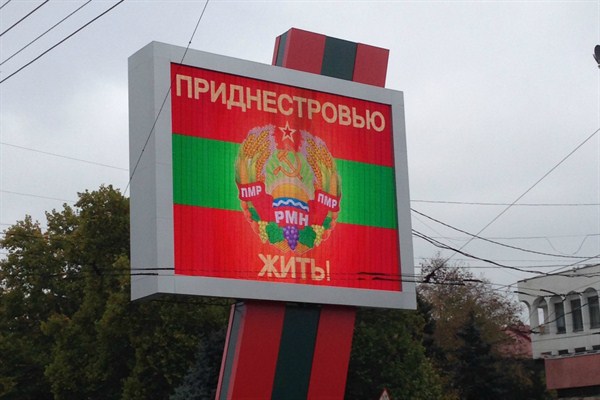Last week, three former Soviet republics—Ukraine, Georgia and Moldova—signed association agreements with the European Union. All three countries contain breakaway territories that Russia either effectively controls or directly supports. While the world was riveted by Russia’s war with Georgia in 2008, and the crisis over Ukraine’s eastern regions continues to make headlines, far less attention has been paid to the case of Moldova. On the country’s eastern edge, between the Dniester River and the border with Ukraine, sits Transnistria, a self-declared state home to about 500,000 people of mostly Slavic descent that announced its independence during the collapse of the Soviet Union. Unrecognized by any United Nations member state, Transnistria has been sustained ever since by the presence of Russian troops. Its disputed status has continually undermined Moldova’s efforts to integrate with Europe, and the chaos in Ukraine illustrates the potential dangers Moldova could face going forward.
Russia’s colorful deputy prime minister, Dmitry Rogozin, has already pledged “full-fledged support” to Transnistria. In response to Moldova’s ratification of the association agreement, Russia wasted no time banning Moldovan meat imports, citing dubious health risks. (Russia had already banned Moldovan wine prior to the agreement.) Russia has numerous other ways to coerce or punish Moldova, from threatening the roughly 700,000 Moldovan migrants working in Russia to cutting off gas imports during the winter, as Rogozin seemed to suggest last year. But perhaps the most powerful lever of all is formally recognizing Transnistria’s independence, as Russia has done with the Georgian regions of Abkhazia and South Ossetia. This would establish a permanent Russian military outpost on the border between Moldova and Ukraine, complicating both countries’ attempts to move toward the EU. Indeed, there is already some evidence that Russia has been using Transnistria as a conduit for arming separatist groups in Ukraine.
Matthew Rojansky, director of the Kennan Institute at the Wilson Center, doubts that Russia has much incentive to take such a provocative step, but acknowledges that most experts would have said the same prior to Russia’s annexation of Crimea. Russia’s formal recognition of Transnistria would not only threaten Moldova’s territorial integrity, but also deal a major domestic political defeat to any Moldovan leader who failed to respond. “The plus side is that it would be like having an amputation,” says Rojansky. “You cut off the diseased limb and now you can get healthy.” The formal loss of Transnistria could, therefore, actually resolve a two-decade-long frozen conflict and hasten Moldova’s westward political trajectory.

